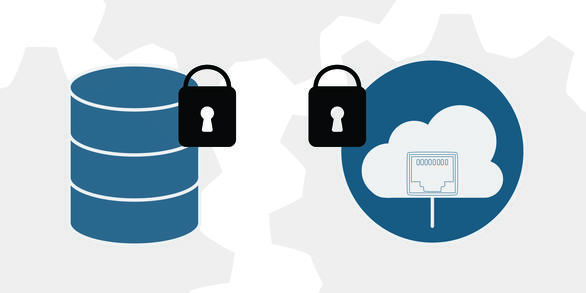In the digital age, our data is more valuable than ever before – from cherished memories to vital information. Safeguarding this precious data should be a top priority for everyone. Building a strong backup plan is essential to ensure that your information remains safe and secure. Let’s delve into the importance of data backup and explore how you can create a robust system to protect your digital assets.

Importance of Data Backup in Today’s Digital World
With the increasing reliance on digital data in today’s world, it is more crucial than ever to have a robust backup plan in place. Data loss can occur due to various reasons such as hardware failure, human error, malware attacks, or natural disasters. To safeguard your important information and prevent costly downtime, implementing a solid data backup strategy is essential.
Having a backup plan not only protects your data from unforeseen circumstances but also ensures business continuity and peace of mind. By regularly backing up your files, you can easily recover lost or corrupted data and minimize the impact of any potential data loss incidents. Additionally, backups provide an extra layer of security against ransomware attacks, as you can restore your systems to a previous state without having to pay a ransom.
When creating a data backup plan, consider the following key elements:
- Regular backups: Schedule automatic backups to ensure your data is consistently updated.
- Offsite storage: Store backups in a secure offsite location to protect against physical damage or theft.
- Data encryption: Encrypt sensitive information before backing it up to prevent unauthorized access.
- Testing backups: Regularly test your backups to ensure they are functioning correctly and can be restored when needed.
Remember, it’s not a matter of if but when data loss will occur. Take proactive steps today to build a strong backup plan and safeguard your valuable information from potential threats.
Implementing a Comprehensive Data Backup Strategy
When it comes to protecting your valuable data, having a comprehensive backup strategy in place is essential. Implementing a strong backup plan not only safeguards your data from unforeseen events but also gives you peace of mind knowing that your information is secure.
One key component of a solid backup strategy is to regularly back up your data to multiple locations. This could include external hard drives, cloud storage services, or network-attached storage devices. By having redundant backups, you decrease the risk of losing data in case one backup fails.
Another important aspect to consider is the frequency of your backups. Regularly scheduled backups ensure that your data is up to date and minimizes the loss of information in the event of a system failure. It’s recommended to schedule backups daily or weekly, depending on the level of activity and importance of your data.
Furthermore, testing your backups regularly is crucial to ensure that they are viable and can be restored quickly when needed. Running test restores periodically can help identify any issues with the backup process and allow you to address them before a real disaster strikes.
Choosing the Right Data Backup Solution for Your Needs
When it comes to safeguarding your valuable data, having a strong backup plan is essential. With the increasing risk of data breaches, hardware failures, and natural disasters, it’s crucial to choose the right data backup solution that meets your specific needs.
One important factor to consider when selecting a data backup solution is the level of security it offers. Look for solutions that provide encryption and secure storage to ensure that your data remains safe from unauthorized access. Additionally, consider the scalability of the solution to accommodate your growing storage needs.
Another key consideration is the ease of use and reliability of the backup solution. Opt for a system that offers automated backups, scheduled backups, and easy restoration processes to minimize downtime in case of data loss. Remember, a reliable backup solution is only effective if it can be easily managed and accessed when needed.
Best Practices for Maintaining a Strong Backup Plan
Backing up your data is crucial in today’s digital age. Without a strong backup plan in place, you risk losing important files, documents, photos, and more. To ensure the safety and security of your data, follow these best practices:
- Regular backups: Schedule regular backups of your data to ensure that you always have a recent copy available in case of emergencies.
- Multiple backup locations: Store your backups in multiple locations, such as external hard drives, cloud storage, and offsite servers, to protect against physical damage or theft.
- Test your backups: Regularly test your backups to ensure that they are working properly and that you can easily restore your data if needed.
By following these best practices, you can safeguard your data and ensure that you never lose important information again.
In a digital age where data is king, protecting your information is crucial. By implementing a strong backup plan, you can ensure that your valuable data remains safe and secure, no matter what challenges may arise. Remember, it’s better to be proactive than reactive when it comes to safeguarding your data. So, take the time to establish a solid backup strategy today and enjoy the peace of mind that comes with knowing your data is protected. Stay safe, stay secure, and never underestimate the power of a good backup plan.

